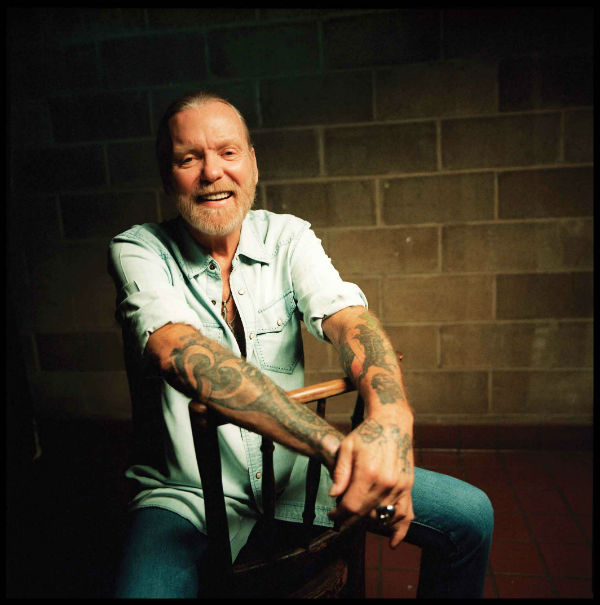Videos by American Songwriter
“The country world opened up to us when I met Keith,” says Brown. “Then, when we signed our deal with Live Nation, he helped put a radio team together that was gonna go tackle it at country music. Everybody felt like ‘Chicken Fried’ was the song to kinda get us out there. It was gonna be one of those anthem-type songs that could kick it off.”
Stegall’s company, Big Picture Entertainment, handled the country promotional efforts and helped steer the song all the way to number one.
Once the band got its foot in the door, it never left. And it doesn’t plan to. “We’ll always have songs for country music,” Brown says. “But I also know that as long I’ve got five songs on every record that are accessible to country radio, as long as five songs off each record can live there, then every other song on the record can be whatever we want. We can stretch out.”
And stretch out the band has done – first, by stretching the bounds of its family. Only Brown, Hopkins and De Martini were in the band when The Foundation was recorded. Bowles – who had opened shows for Zac with his band The Fellowship – was next to come on board. Then Fryar joined, with Cook rounding out the current lineup.
Zac had been courting Cook for months, but it wasn’t until “Chicken Fried” struck big that he agreed to become the band’s sixth member. “Zac asked me to be a part of his band two years prior,” Cook says. “But I had made myself financially comfortable playing with Marshall Tucker Band. I couldn’t take a humungous pay cut to leave and go tour around in a van. I hate to say that it’s all about the money, but sometimes you gotta feed your dog. Zac called me again just after ‘Chicken Fried’ went number one. He said, ‘I think we can afford it now.’ A month later I was on stage.”
The band also stretched out musically during the recording of its second major label album, You Get What You Give. Brown describes the new album as “way better than The Foundation,” calling it a more complete picture of the band’s musical vision – a musical vision molded and refined thanks, in large part, to the group’s three new additions.
“We have a lot of fresh blood around here,” Brown says. “And that brings a lot of fresh ideas. Especially since everyone has their own individual tastes. Everyone infused those tastes into the arrangements of the songs. We do the arrangements together. I bring a finished song to the table, and we all sit around and spend hours arranging it. We play it live and then slowly start adding little things.”
Brown writes most of the band’s material with frequent collaborator Wyatt Durette, who co-penned “Chicken Fried” and five other of The Foundation’s eleven songs. So important is Durette to Zac Brown Band’s songs, in fact, that the group takes him on the road while touring.
“A lot of this new record was written with Wyatt,” Brown says. “He doesn’t play any instruments, but he travels with us. He’s not in the band, but he’s in the family of everyone who travels together. Wyatt used to be a bartender, so he sets up the drinks for the band after the show. And then he drinks most of ‘em.”
Despite all of this talk about “stretching out,” Brown says that he’s not interested in stretching out beyond the boundaries of country music altogether. His relationship to the genre, though lacking a history that includes more than tangential encounters (his parents were fans of Dolly Parton and Hank Sr.), is sincere in at least one strong and specific way: the songwriting.
“Some people go in the country door, and use that to later on go somewhere else. They leave, crossover and do a completely different thing. We don’t ever have to do that, because the great stories, the heart of the songwriting, is already there in country music.”
And in that way, Brown and country music may just be a perfect match. Brown has the heart of a storyteller and a knack for writing lyrics full of vivid imagery, relatable characters and clear storylines. “Highway 20 Ride,” for example (which he co-wrote with Durette), is a father’s introspection on how he’s seen through the eyes of his son (delivered in piercingly honest terms), while “Whatever It Is” somehow manages to perfectly illustrate that seemingly indescribable element that makes the heart go “thump.” “Every time I try to tell her how I feel,” he sings in the song’s chorus, “It comes out ‘I love you.’”
“Whatever It Is” is a prime example of how Brown’s storytelling has evolved since he started his songwriting journey. It wasn’t that long ago that he wouldn’t have been likely to write an ode to love, or a song about happiness, or much of anything at all with a positive twist.
“I started writing for therapy,” he says. “The first time I ever fell in love and had my heart broken, that’s when the music started coming in handy. The first time you get intimate with somebody, when you’re young, that heartbreak feels like you’re gonna die. That’s when I really started writing, and so the first songs I wrote were really sad.”
Like many young songwriters, Brown would wait for moments of deep inspiration before he would pick up a pen or a guitar. He would wait for those moments when his heartbreak felt deadly, when his soul was so full of pain that he could find no other way to relieve the pressure than to bleed it out through words and melody.
But as he got older, he says, he started to think about why all of his songs were so sad. And he realized that his only wellspring of inspiration was that internal pain.
“When I was having fun, when I was feeling good, I never took time to write,” he says. “I wasn’t writing because I didn’t need it.”













Leave a Reply
Only members can comment. Become a member. Already a member? Log in.